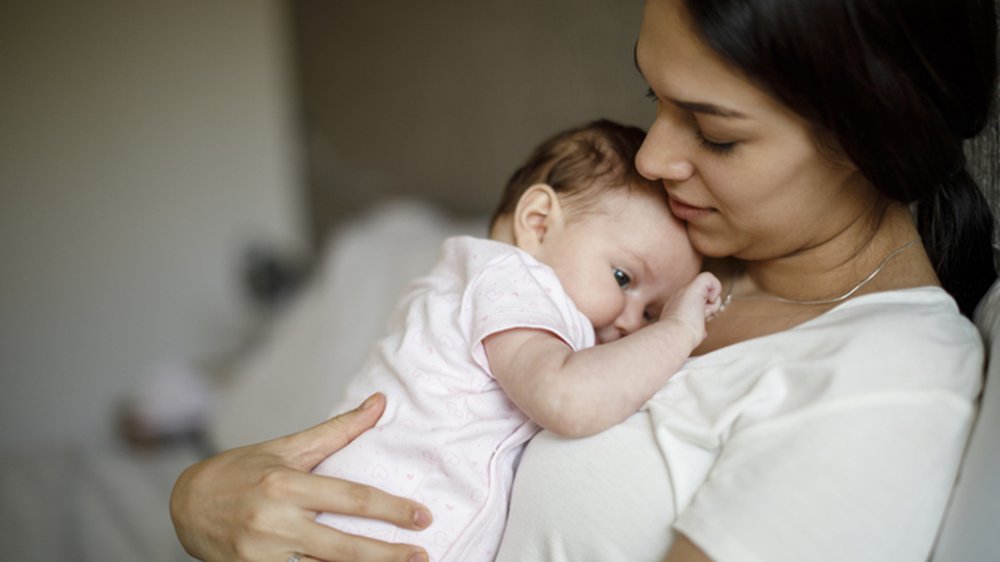What Effects Will the COVID-19 Vaccine Have on Sex, Reproduction and Fertility?
A lot of claims have been made about the effects of the COVID-19 vaccines on fertility and/or sexual function. Many have originated and spread through social media, sometimes becoming so widespread they are nearly impossible to miss.
Remember the Nicki Minaj-started, social media-fueled, internationally covered statement (dubbed #ballgate) suggesting the COVID-19 vaccine had a negative impact on her cousin’s friend’s anatomy? While the post did not include scientifically confirmed information, we do agree with a key point of Minaj’s response to the post: the part where she wrote, “Asking questions is OK.”

Image credit: Getty Images
Asking questions IS ok. And this pop culture + science collision gives us the perfect opportunity to dive into another COVID-19 vaccine-related conversation.
Below are some of the questions that have arisen from statements made about COVID-19 and COVID-19 vaccines regarding their relationship to pregnancy, fertility, and reproductive cycles and what scientific research has shown us.
Is the COVID-19 Vaccine Safe for Pregnant People?
- Early COVID-19 vaccine trials didn’t include pregnant or lactating people, so the safety data wasn’t available when the vaccine first came out. The cautious approach was to advise pregnant people to wait a bit longer than other adults to get the vaccine.
- The studies are now complete and scientists recommend the COVID-19 vaccine for people who are pregnant or breastfeeding. In multiple studies, there is no evidence for congenital anomalies (birth defects) or birth complications.
- Pregnant people have the same reported reactions to the vaccines as people who are not pregnant.
- Pregnant people are at a high risk for infection and complications with COVID-19. The immune system effects of pregnancy itself make an infection about five times more likely. If infected, they are at an increased risk for severe disease and complications from COVID-19 compared with same-age counterparts.
Can the COVID-19 Vaccine Impact Female Fertility?
- A statement was made that vaccine-induced antibodies against the spike protein that SARS-COV-2 uses to enter human cells might also attack another human protein (syncytin-1) needed for embryo implantation or placenta development. This, the claim purported, would cause infertility.
- An immunology team compared the amino acid sequences of the two proteins and showed they are not similar and do not cross-react.
- Many people have conceived after vaccination and/or after recovering from COVID-19, indicating that antibodies produced do not interfere with fertility. No evidence yet exists for infertility related to COVID-19 antibodies.
- A study published in June 2021 showed no difference in success rates of embryo implantation in people who carried antibodies to SARS-COV-2.

Image Credit: Getty Images
Can the COVID-19 Vaccine Impact Male Fertility?
- Studies have shown there is no evidence the COVID-19 vaccine has any effects on male fertility.
- In fact, the opposite is true: scientists recommend males who wish to remain fertile should be vaccinated against COVID-19. Evidence from dozens of studies shows that COVID-19 infection may negatively affect testicular function, sperm production and male fertility.
- In addition to the various biological disruptions of fertility, COVID-19 infection can also lead to uncomfortable symptoms. Numerous medical and research reports detail male COVID-19 patients with testicular pain or discomfort, orchitis (testicular inflammation), and/or epididymitis (inflammation of the small coiled tube at the back of the testicle).
- Several studies have also described the negative effects of COVID-19 on penile tissue. The SARS-CoV-2 virus was detected in penile tissue up to nine months after infection and could result in erectile dysfunction.
Can the COVId-19 Vaccine Impact Menstrual Cycles?
- Some vaccinated women have reported disruptions in their monthly cycle. After multiple studies, there’s no evidence showing a cause-and-effect relationship between menstrual disruptions or disorders and the COVID-19 vaccines.
- It’s likely that getting a new vaccine is enough of a stressor to throw off the menstrual cycle. The physiological effects of many kinds of stressors (whether physical, mental or emotional) can disrupt the pathways that drive menstrual timing. The good news is that any menstrual effects appear to be short-lived.
- COVID-19 infections do seem to have a more reliable cause-and-effect relationship with menstrual cycle disruptions, with one study revealing 28% of patients experienced menstrual changes. At this point, scientists can’t definitively say if those variations were due to the stress of the illness or if it is related to the effects of COVID-19 on the circulatory or other systems, but one doctor described the effects of COVID-19 infection as 100 times worse than any effects of a vaccine.
Social media has kept us connected while we had to be apart, and it’s natural to seek information in social circles. What #ballgate shows us is the importance of seeking evidenced-based answers before making our own conclusions. It’s not easy to do! Especially when sensitive topics like fertility become a part of the conversation. That’s why it’s so important to question our world.
Have questions about COVID-19 or the COVID-19 vaccines? Send them our way! Message us through our social platforms or shoot us an email at [email protected].
If you’d like to do some further reading on the topics discussed in this blog, here are some reliable sources from which to glean more information:


